In Florida, real estate ownership is largely a matter of public record. A simple online search can reveal who owns a property, where they live, and often what else they own. For many property owners, that level of transparency is not ideal.
A Florida land trust is a powerful and underused tool that allows property owners to maintain privacy while preserving full control over their real estate. When used correctly, land trusts can also play an important role in estate planning and asset protection strategies.
What Is a Florida Land Trust?
A Florida land trust is a statutory trust authorized by Section 689.071, Florida Statutes. In a land trust:
Legal title to the property is held by a trustee
Beneficial ownership is held by one or more beneficiaries
The trust agreement is private and not recorded
Only the deed into the trust appears in the public records, typically showing the trustee’s name and the name of the trust—not the beneficiary.
Importantly, the land trust statute allows the trust agreement to designate the character of the beneficiary’s interest to be personal or real property.
A Brief History: Why Florida Adopted the Land Trust Statute
Florida’s land trust statute was modeled in part on the long-standing Illinois land trust system. It was enacted to provide clarity and certainty in real estate transactions by:
Clearly separating legal title from beneficial ownership
Allowing private control and transfer of ownership interests
Facilitating financing, development, and estate planning
The first land trust statute was enacted in 1963, and there were subsequent amendments in 2006 and 2013.
By codifying land trusts, the Florida Legislature made clear that these arrangements are not loopholes or gimmicks, but legitimate planning tools.
How a Land Trust Works in Practice
In practice, a land trust is usually straightforward:
The property owner deeds the property to a trustee, “as trustee of the ___ Land Trust dated ___.”
A private trust agreement defines the rights of the beneficiary.
The beneficiary typically retains:
the right to possess and use the property
the right to direct sales or refinancing
the right to receive income
the right to replace the trustee
Although the trustee holds title, the beneficiary usually controls all meaningful decisions.
Key Benefits of Florida Land Trusts
1. Privacy
The primary benefit of a land trust is privacy. The beneficiary’s name does not appear in the public records, which can deter nuisance lawsuits, unwanted attention, and casual asset searches.
2. Flexibility
Beneficial interests can often be transferred without recording a new deed. This makes land trusts useful for:
estate planning
family transfers
investment restructuring
3. Probate Planning
When structured properly, a land trust can help avoid probate or simplify the transfer of property upon death, especially for out-of-state owners of Florida real estate.
4. Homestead Protection
Recent amendments to Section 689.071 ensure that a beneficiary’s principal residence held in a land trust qualifies for the Florida Homestead Tax Exemption.
What a Land Trust Does Not Do
A land trust by itself is not a liability shield. It does not eliminate responsibility for property-related obligations, nor does it automatically protect against creditors. Courts can still reach the beneficial interest of a debtor when appropriate. This is why land trusts are best viewed as privacy and planning tools, not standalone asset-protection vehicles.
Using Land Trusts with LLCs for Stronger Protection
For many property owners, the most effective structure is a land trust combined with a Florida LLC (limited liability company):
The land trust holds title and preserves privacy
An LLC is named as the beneficiary
The LLC provides liability insulation and creditor-remedy limitations
This layered approach can significantly reduce exposure to business and tenant-related risks while keeping ownership details out of the public eye. Please see our article on the Florida LLC for more information about this planning vehicle.
Conclusion: A Simple Tool with Powerful Uses
Florida land trusts offer a unique combination of privacy, flexibility, and planning efficiency. While they are not a one-size-fits-all solution, they can be an excellent component of a broader real estate and asset-protection strategy—especially when paired with properly structured LLCs.
As with any legal planning tool, the benefits of a land trust depend on careful drafting and correct implementation.
Call Florida Real Estate Attorney John Clarke at (305)467-5560 for your asset protection needs!





















